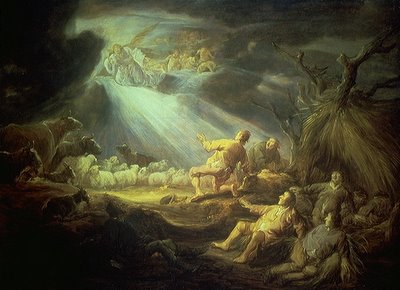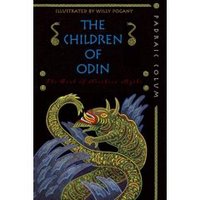On the 12th of this month, I gave a talk reflecting on some of the things I had been reading about the situation in France. I share the talk here in the hope of generating some feedback.
Over the last couple of weeks, an eruption of violence has occurred in over 300 French towns and villages. A tide of arson, vandilism and brutal murders have taken the French police by surprise. This is shocking enough, but what is even more shocking is that the main news channels have consistently failed to report the true nature of what is occuring. In particular, they have not been telling the public that these riotors are predominantly muslums, many of whom have been crying “Alah Akbar” as they vandalize, destroy property and burn out whole neighborhoods. On November 10th, David R. Sands and Sharon Behn wrote in THE WASHINGTON TIMES that “saying they're Muslim is a subject of angry dispute. French officials downplay the religious connections, and some newspapers, particularly in the United States, avoid identifying the rioters as Muslim."
The rioters have come out of the French high-rise ghettoes, which are mainly populated with Muslim immigrants who have never assimilated into French culture, though they are officially French citizens. What do the riotors want, and what do they hope to achieve through such violence? Some Muslim leaders have explained that they want governmental autonomy in their ghettos; they want the French government to give them extraterritorial status so that they can set their own rules, presumably based on Muslim law. At the least, they would settle for greater influence in the government. It seems likely they will achieve their objective since the French government, like many of the governments in the West, is predisposed to give favours to minority groups who can successfully present themselves as having been ‘marginalized.’
One has to be intentionally blind or intellectually opaque not to see this in the larger context of the fifteen hundred year struggle for Islamic dominion of the world. Yet the media has been downplaying events in France, and when they do refer to it, they usually speak of it being the mischief of hoodlums and underprivileged groups.
There is only one thing worse than surrendering a war without a fight, and that is to deny that the war is happening when it is raging around you. But this is exactly what the secular media and even the leaders of America and Britain are doing. They will not acknowledge that the violence in France, or the acts of terrorism on our own lands, are part of this ancient war that Islam has declared on everyone else. As if fifteen hundred years of history has not furnished enough evidence that Islam will be satisfied with nothing short of worldwide dominion, we are told time and again that Islam is a peace-loving religion. This represents historical amnesia to the greatest conflict of the last millennium. Consider the following words from George Grant.
The reality is that the greatest human conflict of the past century has not been between Communism and Democracy. It has not been between Liberalism and Conservatism. It has not been between Socialism and Capitalism. It has not been between Rich and Poor, Proletariat and Bourgeoisie, Industrialism and Agrarianism, Nationalism and Colonialism, Management and Labor, First World and Third World, East and West, North and South, Allied and Axis, or NATO and Soviet. All of these conflicts have been important, of course. All of them helped to define the modern era significantly. None of them should be in any way underestimated.
But while every one of these conflicts has pitted ardent foes against one another and as a result, has actually altered the course and character of recent history, none of them could be characterized as the most convulsive conflict of the past century. The most convulsive conflict of past century—and indeed, the most convulsive conflict of the past millennium—has undoubtedly been between Islam and Civilization; it has been between Islam and Freedom; it has been between Islam and Order; it has been between Islam and Progress; it has been between Islam and Hope; it has been between Islam and the Gospel. While every other conflict pitting men and nations against one another has inevitably waxed and waned, this furious struggle has remained all too constant. The tension between Islam and every aspiration and yearning of man intrudes on every issue, every discipline, every epoch, and every locale—a fact that is more evident today than perhaps ever before. (From
George Grant's Blog)
As Christians we must be prepared to identify and meet the Islamic challenge even when the rest of the world is not. In a minute we will be looking at some of the spiritual weapons that the Bible gives us for such fights. Christians should not be like foolish generals who fight yesterday’s battle rather than anticipating tomorrow’s battles. So much Christian apologetics is aimed at attacking atheism and secular humanism, and while this is entirely appropriate, I do think Islam is a much greater threat. The religion of secular humanism will not be able to sustain itself the way Islam can, because secular humanism is innately unstable and, I believe, incapable of sustaining itself over many generations. Humanism is innately unstable is because it has a self-contradiction at its very centre. This self-contradiction is a time bomb that will eventually cause secular humanism to self-destruct.
It is not difficult to see what this time-bomb is. The religion of secular humanism is based on the principle of the individual’s autonomy. Since humanism gives each person the right to pursue his or her own path, it is antithetic to all attempts to force one’s religion onto someone else. This leads to the idea of tolerance, as the humanist strives to accept all different religions and cultures. But the problem is this: in order for the religion of secular humanism to practice tolerance towards any religion other than itself, it must compromise its principles in either one of two ways. Either secular humanism can be tolerant towards religions that are contrary to its own ideology, in which case it must tolerate something opposed to itself, or secular humanism must be intolerant towards religions that contradict itself, in which case it is going against its own principle of tolerance. If it does the second of these options, then secular humanism will eventually turn the West into another fascist state, denying people rights and liberties under the rhetoric of freedom and liberty. In that case, humanism would give way to a religion of the totalitarian state rather like the religion of Caesar in imperial Rome. We are already beginning to see this happen.
But we are also seeing the first option occurring as well, as secular humanism has welcomed multiculturalism and religious pluralism. The strange alliance in the liberal media between humanism and Islam is just a symptom of this. But notice where this will eventually lead. As secular humanists welcome Islam into the West, allowing it have more and more of a foothold in the name of religious tolerance, they are making the West vulnerable to a force that may eventually destroy the very tolerance that welcomed them. (See Patrick Buchanan’s article ‘
Paris Burning: How Empires End’)
So whether secular humanism gives way to a religion of the totalitarian state, or if it gives way to the rise of Islam, or it gives way to a combination of the two, things cannot carry on in their present form. There is bound to be a battle for worldwide dominion, and eventually it will be either the religion of Christ that covers the earth from sea to sea or the religion of the devil, whatever form the later may take.
In France we are seeing the ironic logic of fundamentalist Islam arising directly out of secular tolerance. We keep being told that the riots are the result of France’s failure to "assimilate" immigrants from North Africa, and on one level this is perfectly true. In his article “
Multiculturalism and the Self-Liquidation of Europe”, Robert Tracinski recently pointed out how Europe in general and France in particular has long lost any interest in assimilating its immigrants into native culture, since to do so would go against the grain of multiculturalism and tolerance. Indeed, it is even sometimes suggested that the very desire to absorb immigrants into native culture smacks of the kind of cultural induction practiced by the Nazis. So instead, European nations have gone out of their way to "accommodate" other cultures, encouraging immigrants to live for decades sealed off in their own enclaves. In France, these enclaves have long been treated as "no-go zones," by the police, left to be run by the Muslims themselves. What set off the riots was the re-assertion of some degree of French control after years of multiculturalist tolerance. The tolerance of secular humanism and multiculturalism was simply the Trojan horse Muslims needed. We should expect Muslims to continue and use humanist tolerance as a Trojan horse in their agenda for worldwide dominion.







